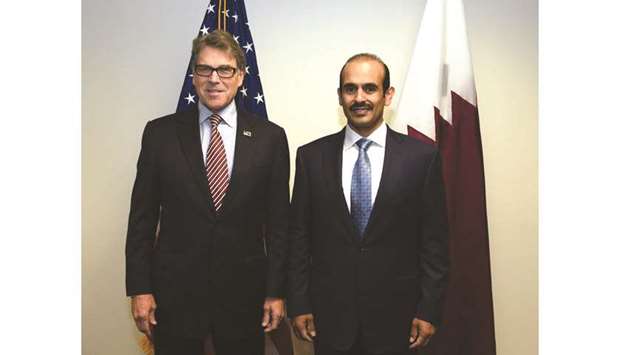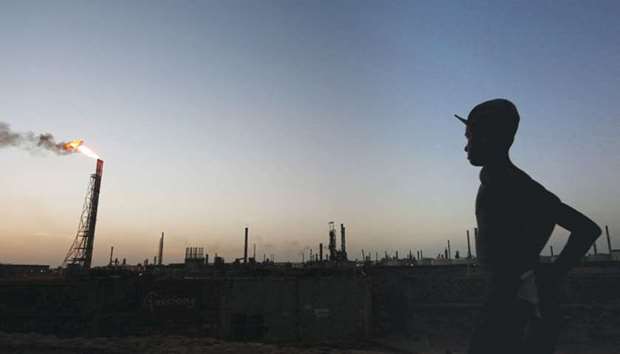Un an après le début du blocus, le Qatar affiche sa résilience


S’il a laissé indemne le Qatar, l’embargo a en revanche exacerbé les tensions existant au sein du Conseil de coopération du Golfe.
Voici plus d’un an déjà que l’Arabie saoudite, le Bahreïn, les Émirats arabes unis (EAU) et l’Égypte ont imposé un embargo au Qatar, souhaitant étrangler son économie par un blocus aérien, terrestre et maritime dont la légalité pose question. Si cette mise au ban n’a pas été sans conséquences pour Doha, elle a surtout eu pour mérite de mettre en relief sa résilience économique et, par ricochet, l’inaptitude de ses voisins à frapper durablement au portefeuilles un Qatar émancipé. Ceci étant, il importe que le dialogue reprenne entre les parties : ce qu’appellera sûrement de ses vœux Emmanuel Macron le 6 juillet, lors de son entrevue avec l’émir du Qatar Tamim Ben Hamad al-Thani.
Le Qatar affiche sa robustesse
Décidé sur la base d’accusations non prouvées de soutien qatarien au terrorisme, le blocus a certes contraint le Qatar à dépenser plus qu’il n’avait budgété, un problème qu’a toutefois réussi à surmonter le plus grand exportateur du monde de Gaz Naturel Liquide (GNL). Après une brève période d’incertitude, les affaires ont repris dans la plupart des secteurs clés (dont les chantiers de la Coupe du Monde de football). De hauts responsables prévoient une croissance d’environ 3 % pour 2018, résultat meilleur que ceux de la plupart des pays voisins.
La pénurie de produits d’importation alimentaires a été rapidement levée par la réactivité de certains pays, Turquie et producteurs européens. Certains craignaient que ce qui est devenu le plus long blocus aérien depuis la Seconde Guerre mondiale ne fasse des ravages dans le secteur des transports. Qatar Airways a effectivement été touchée par l’interdiction d’accès à l’espace aérien de l’Arabie saoudite, des Émirats arabes unis, de l’Égypte et de Bahreïn. Mais il se pourrait que la compagnie aérienne sorte grandie de cet épisode : elle a fièrement revendiqué avoir transporté les produits de première urgence dès le déclenchement du blocus et a récemment ajouté ou annoncé une vingtaine de nouvelles destinations.
Les ports du Qatar, largement sous-exploités jusque-là, ont connu une croissance forte, depuis les terminaux modernes pour vraquiers et conteneurs jusqu’aux petits ports locaux en passant par les entreprises satellites les desservant. La fermeture de la frontière avec l’Arabie saoudite a, en revanche, mis un terme à tout commerce terrestre.
Dans le secteur de l’énergie, le Qatar a repris sa place de leader mondial de GNL. Qatar Petroleum a annoncé son intention de porter sa production de 77 à 100 millions de tonnes par an, garantissant sa première place pour les 20-25 prochaines années. Soucieux de préserver son rôle de stabilisateur énergétique, le gouvernement a tenu à assurer ses obligations contractuelles malgré la situation qui lui aurait permis d’opposer la « force majeure ». Tous les clients transatlantiques, transpacifiques, méditerranéens et de l’océan Indien ont été livrés. Malgré une tentative émirienne de faire pression sur les compagnies étrangères, les plus importantes sociétés pétrolières et gazières du monde, notamment ExxonMobil, Shell et Total, ont continué à investir et plus de 120 sociétés nouvelles ont reçu des licences du Qatar Financial Center (QFC), plateforme financière fondée sur le Common Law Britannique.
De nouvelles lois adoptées en 2017 confèrent aux travailleurs étrangers plusieurs protections dont la garantie de paiement régulier des salaires dans les comptes bancaires locaux, des mécanismes pour résoudre les conflits au travail et la création d’un nouveau comité de lutte contre la traite des êtres humains.
Après les premières menaces de 2013, cette nouvelle épreuve a incité le Qatar à mettre en œuvre des plans de sécurité alimentaire à long terme. Par ailleurs, la crise a révélé que l’État qatarien est en mesure d’apporter une réponse globale reposant sur un programme d’autosuffisance économique et des campagnes diplomatiques et de relations publiques extrêmement efficaces. Au plan énergétique, Doha a rassuré ses partenaires en leur démontrant sa capacité à assurer la sécurité de l’approvisionnement à tout moment, améliorant au passage à la compétitivité des marchés mondiaux.
Tensions diplomatiques
La mise au ban du Qatar n’a pas détourné ses principaux partenaires économiques : Washington a confirmé sa base qatarienne Al-Udeid, qui abrite le siège du Commandement des opérations aériennes de la « coalition contre la terreur » dans toute la région, et a approuvé la vente de 72 chasseurs-bombardiers F-15 à Doha. La Grande-Bretagne a vendu deux douzaines d’Eurofighter Typhoon au Qatar et la France au moins 36 Rafale, ainsi que près de 500 véhicules blindés de combat d’infanterie (VBCI). La Turquie a accéléré le déploiement de ses troupes et de nombreux matériels dans sa base récemment installée près de Doha. La Russie pourrait même négocier la vente de son système S-400 de défense aérienne au petit pays du Golfe.
S’il a laissé indemne le Qatar, l’embargo a en revanche exacerbé les tensions existant au sein du Conseil de Coopération du Golfe. Plus généralement, l’embargo a divisé une grande partie du monde arabe et islamique, en contraignant de petits pays à faire des choix impossibles. Impuissant à pénaliser réellement le Qatar sur le plan macro-économique, le blocus a créé un imbroglio diplomatique monstre.
Une situation absurde à bien des égards, qui pourrait cependant trouver une solution assez facilement : Doha travaille à maintenir des canaux de communication ouverts afin que, si un retournement venait à se produire, il n’y ait pas d’obstacles à une réconciliation entre pays frères. Un an après, le Qatar affiche sa résilience mais ne renonce pas au dialogue.
Reste qu’un rétropédalage du quartet à l’origine du blocus apparaît de moins en moins probable, après les graves accusations qu’il a portées contre le Qatar. Principales victimes de cette guerre froide : les quelque 16 000 familles mixtes du Conseil de Coopération du Golfe (CGC) comprenant un ou plusieurs membres à double nationalité, et en particulier les milliers d’enfants séparés d’au moins un de leurs parents.

M. Baroudi a occupé divers postes influents. En 1999, il a été élu secrétaire général du Comité des membres du Conseil mondial de l’énergie – Liban, poste qu’il a occupé jusqu’en janvier 2013. Il est également membre de l’Association Française des Techniciens et Professionnels du Pétrole, ancien conseiller principal du Forum arabe de réglementation de l’électricité (AREF), membre de l’Energy Institute (Royaume-Uni) et membre de l’Association internationale pour l’économie de l’énergie (IAEE) aux États-Unis.
En qualité de consultant pendant plus de 37 ans, il a effectué de nombreuses missions de conseil comme expert auprès de l’Union Européenne, Banque Mondiale, USAID ou encore le Fonds Arabe de Développement économique et social.
Il est au conseil d’administration de différentes sociétés et coentreprises internationales. Roudi Baroudi est l’auteur ou le co-auteur de nombreux livres, articles, études et rapports de recherche sur les questions politiques, économiques, climatiques et autres liées à l’énergie.






